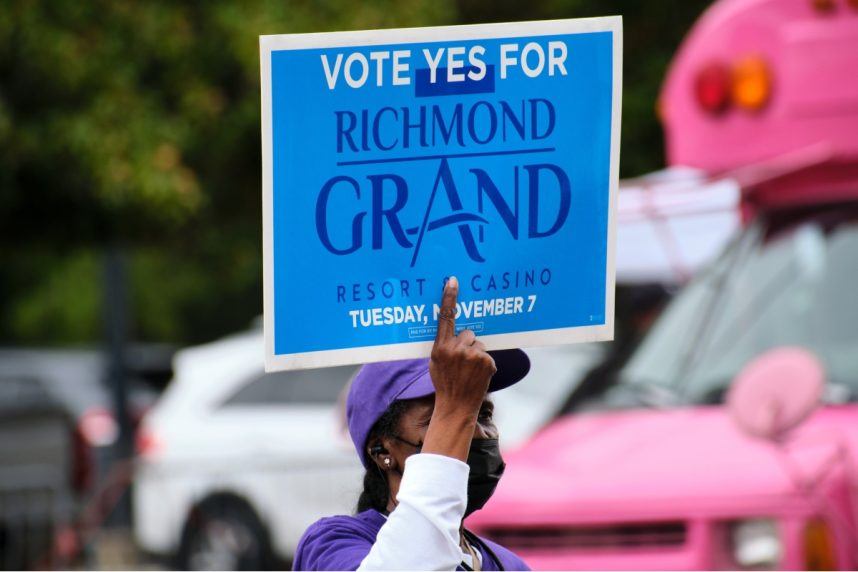Posted on: November 1, 2023, 10:43h.
Last updated on: November 1, 2023, 10:43h.
New polling on next month’s Richmond casino referendum suggests uncertain victory for either side.

Early voting in the Virginia capital is underway on the proposed $562 million project being presented by Urban One, Inc., in partnership with Churchill Downs, Inc. While the bulk of the vote will come on Election Day on Nov. 7, Richmonders are already casting their ballots in deciding whether Richmond will become a casino host destination.
National polling outlet co/efficient recently conducted a poll on the casino, marking the second time in three years that Richmond residents are asked to authorize a gaming resort by their City Council. The survey, initially obtained by WRIC ABC 8 News in Richmond, shows a divided electorate.
With more than 900 likely voters in Richmond participating, the poll reveals a slightly higher number of casino opponents compared to supporters. According to the survey, 43% of respondents said they would “definitely vote no” on the casino question, while only 39% claimed they would “definitely vote yes.”
The following ballot question is posed to Richmonders:
“Shall casino gaming be permitted at a casino gaming establishment in the City of Richmond, Virginia, at 2001 Walmsley Boulevard and 4700 Trenton Avenue, Virginia, 23234, as may be approved by the Virginia Lottery Board?”
Critical Vote
If Richmonders approve the casino, which narrowly failed during the 2021 election with a 51-49% outcome, Urban One and Churchill Downs officials anticipate significant benefits for the capital metro.
The casino developers plan to create 1,300 jobs, mostly union positions with an average yearly compensation of $55,000 in pay and benefits. Additionally, the Richmond Grand Resort & Casino project is expected to generate $30 million annually in local taxes.
Mayor Levar Stoney (D) and the Richmond City Council have outlined plans to allocate a large portion of those tax revenues to support early childhood programs.
However, there are also strong opposition voices against the Richmond casino.
The campaign against the Richmond Grand emphasizes that holding a second vote on the casino goes against the democratic process. Local activist Paul Goldman and his organization, “No Means No Casino,” recently won a lawsuit arguing that they were wrongly denied access to voter lists made available to pro-casino groups.
The opposition is also concerned that a casino on Richmond’s Southside will have a negative impact on Black communities, which have a higher vulnerability to gambling and gambling disorders, according to behavioral health experts. Researchers at Rutgers University’s Center for Gambling Studies reveal that Black individuals have more than twice the rate of gambling addictions compared to white individuals.
However, Mayor Stoney and the Richmond City Council, including representative Reva Trammell from the 8th District Southside, believe that the casino will bring much-needed economic investment and high-paying jobs to the area.
Richmond Fifth and Final City
Virginia lawmakers passed a legislation in 2020 that allows voters in five economically distressed cities to consider a casino as a means to revitalize their local economies. Four of those cities — Norfolk, Portsmouth, Bristol, and Danville — held referendums in November of that year, with locals endorsing the establishment of commercial casinos.
Richmond, which garnered the most attention from casino companies, postponed its gaming referendum to 2021 to allow for a competitive bidding process. Ultimately, Richmond’s city government selected Urban One, despite the media conglomerate’s focus on the Black community and lack of prior experience in casino development and operation.
The 2021 vote showed clear division, with affluent neighborhoods north of the James River opposing the casino, while areas south of the city tended to support the Urban One proposal, which was then in collaboration with Peninsula Pacific Entertainment. Urban One later partnered with Churchill Downs after acquiring most of Peninsula Pacific’s assets for $2.5 billion in 2022.


